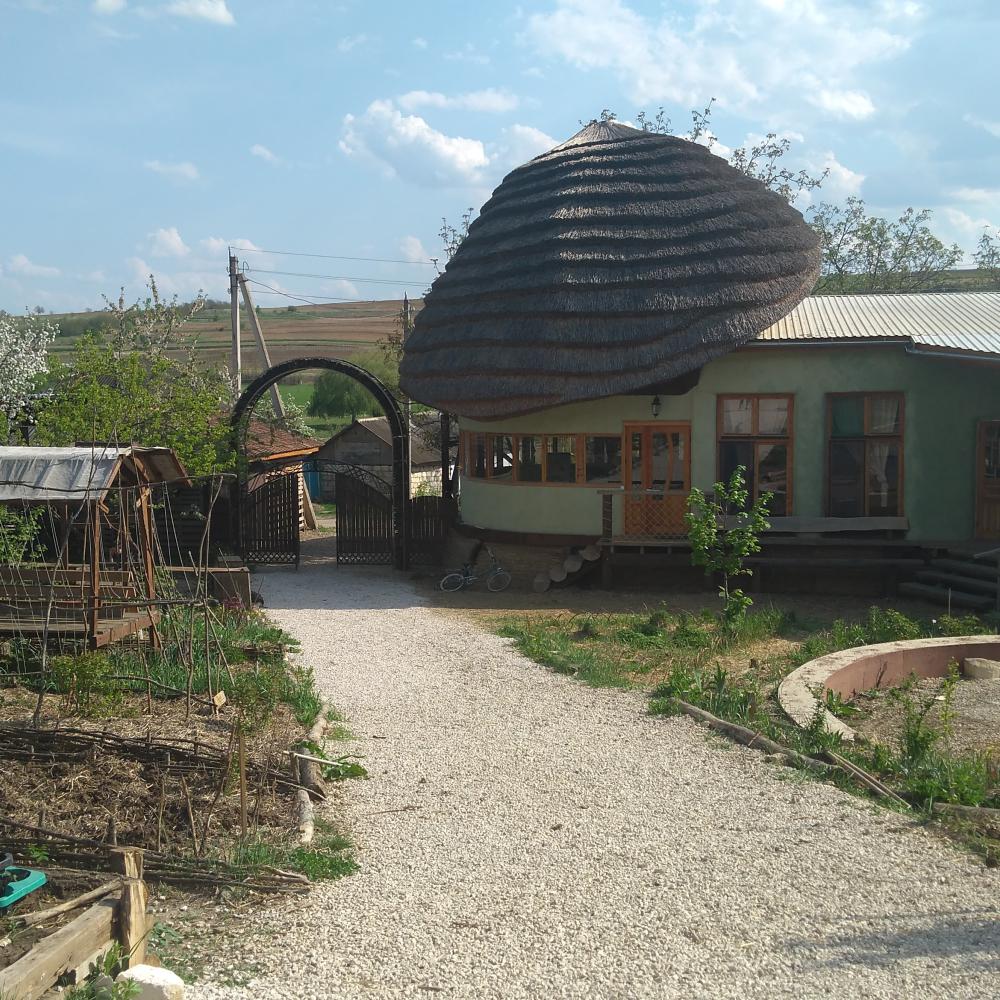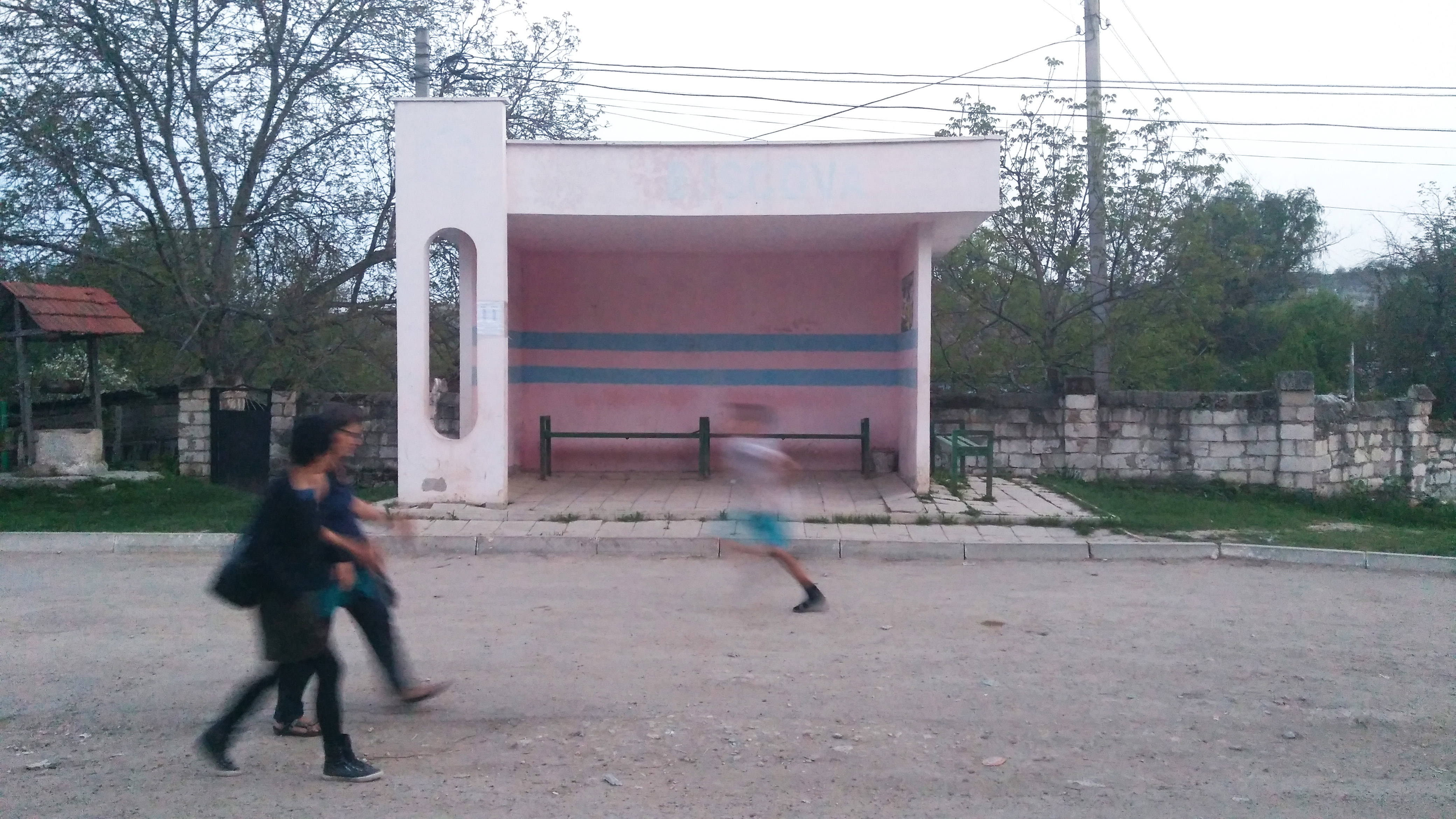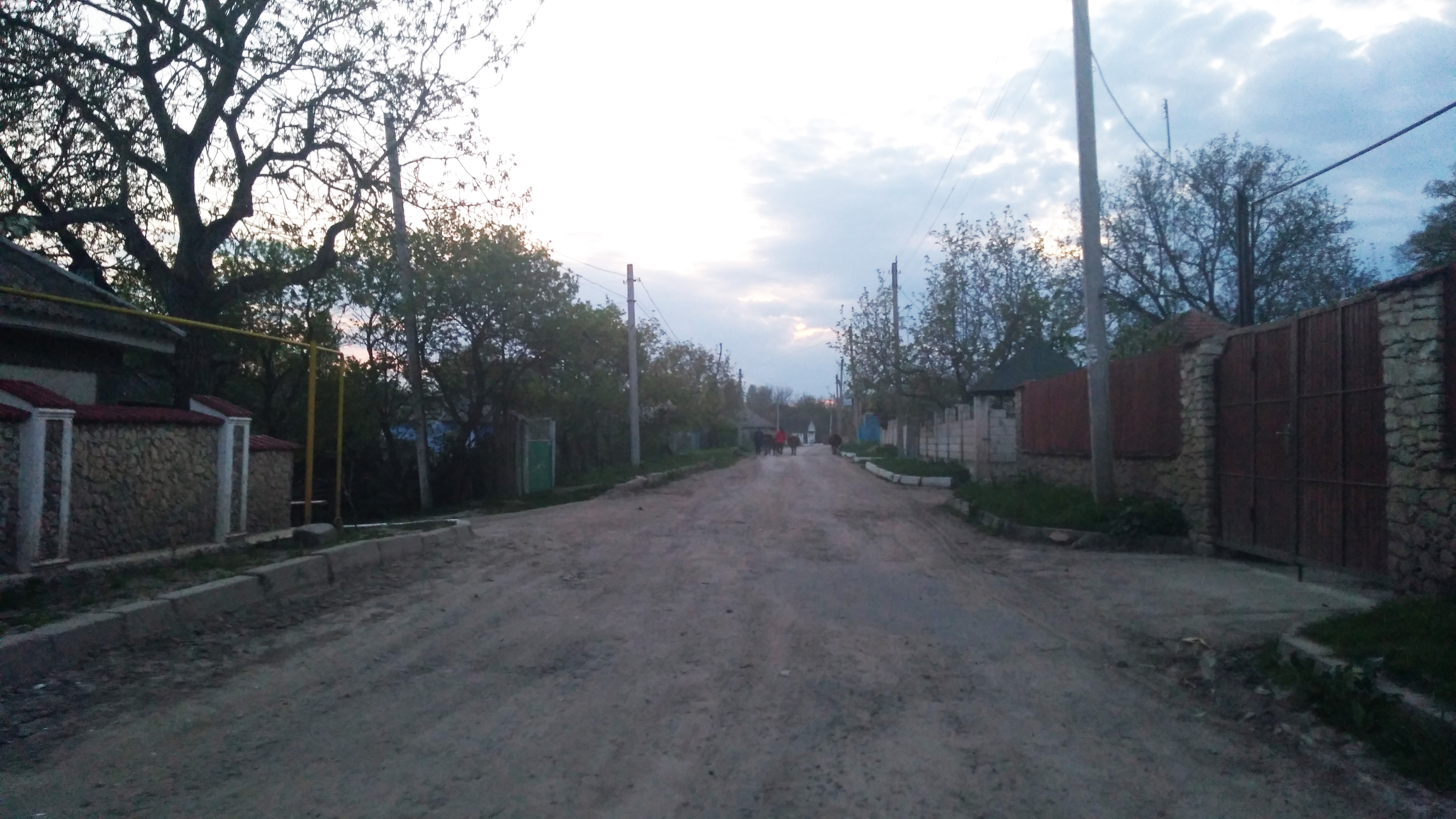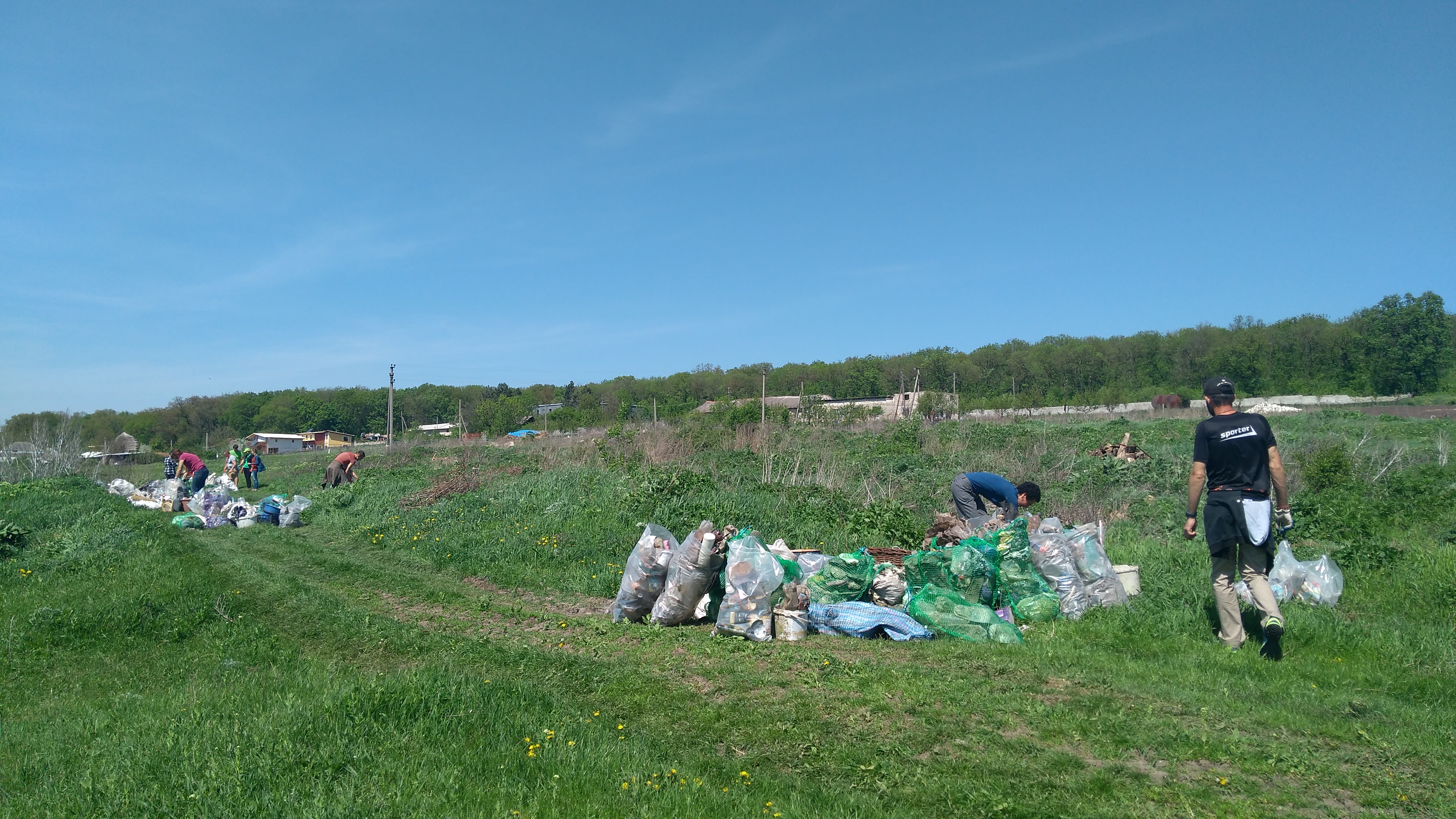
What happens to a country when its young people leave to find jobs elsewhere? Jelena goes to Moldova and learns how a small community of newcomers is bringing renewed hope and new economic opportunities.
We meet Evgenya, Julian and Liliana, three people working hard in different ways to build a brighter future for their families and community. Evgenya returns home after years away, separated from her family while working in Russia to encounter two Robert Bosch alumni, Julian and Liliana and their plans for community-based rural development.
Bosch Alumni Network Event:
Practitioners Lab, Riscova: 25–29, April 2018
To find out more about the Ecovisio’s work in Moldova, their current projects and future plans visit http://www.ecovisio.org/
If you want to check what was it like to be a part of the Practitioners’ Lab in Moldova, please check the EcoVisio’s Facebook album of the event.
To keep track on what Epic Sax guy does nowadays, we checked his Facebook page https://www.facebook.com/EpicSaxGuyMoldova/
Music in this episode:
WhaleHawk – It takes Two
Lee Rosevere – Sad Marimba Planet
N Kramer – Slipping Through The Cracks
PHOTOS:

Riscova Bus Station. Credit: Jelena Prtoric

Riscova Streetscape. Credit: Jelena Prtoric

Collective Trash Collection Effort. Credit: Jelena Prtoric
EPISODE 1 - A Country Goes Nuts – Transcript
Step One Transcript
Episode 01
“A Country Goes Nuts”
© 2018 – Step One Productions
This is STEP ONE
a podcast about people striving to change their world -- our world.
We tell you stories of the Bosch Alumni Network. A network of doers and thinkers connected across the globe working toward positive change.
From Berlin
I am Benjamin Lorch.
And today’s episode: A Country Goes Nuts
In this episode, our reporter Jelena shares a story about an Practitioner’s Lab organized by Bosch Alumni, Julian and Liliana. The event gathers some 20 Bosch Alumni to exchange expertise on sustainable rural development.
But before we dive into our story, we want to introduce you to the community this podcast is part of.
[Jingle]
It’s the Bosch Alumni Network, which consists of people who have been supported, in one way or another, by the Robert Bosch Foundation. The network is coordinated by the International Alumni Center, a think & do tank for alumni communities with social impact. The iac Berlin supports this podcast. If you want to know more about the power of networks, visit iac-berlin.org.
[Jingle]
Yvgenya
You are already recording?
Jelena
Yes.
Evgenya
Mamma mia! Ok you will cut it afterwards…
(Laughs)
J
So Ben, for this first episode of our podcast I was in Riscova.
B
Wait, where is Riscova?
J
Riscova, it’s a village in Moldova.
B
Moldova
J
You know where Modova is?
B
Yeah, I do.
J
Where is Moldova?
B
It’s between Romania and Ukraine.
J
OK, what else do you know about Moldova?
B
It’s landlocked, even though it’s close to the black sea, they don’t have a port.
J
Exactly.
And I stayed with the woman you hear on the tape. Evgenja.
VOICE OVER - Evgenya
So..you know how it is, I wasted these twenty years of my life in Moscow..I really wasted them..I gave these years to my children. I didn’t have ...let’s call it... youth, or anything. I am really sorry, really sorry. Because I wasn’t with my children, I did not raise them.
J
Evgenya has three children and seven grandchildren. And she can count the days she got to spend with them. She worked abroad for so many years, trying to build a better life for her family. She missed out on her children’s first steps, their birthdays, they first days of school, their football games and dance shows.
VOICE OVER
How many times did I look back at the doors of my home...I would leave in tears, in tears. My children were crying -- if only you had seen it! I remember it, even if it was so many years ago…
When I was working in a foreign country and I saw young children with braids… that’s when I would ask myself: who is braiding the hair of my children
B
Whoa, that is pretty heavy but why did she go to Russia in the first place?
J
Money, really. You have to remember, when Evgenya first left for Russia, it was in early 90s. The Soviet Union collapsed and Moldova gains its independence but almost overnight the country shifted from communism to the market economy. So factories closed and state owned companies just disappeared. And, there was not enough work and not enough money for Evgenya here in Moldova.
Not then, not now.
What’s even worse, that sacrifice she took for her children, she feels it was almost for nothing.
VOICE OVER
What did we get for these 20 years I wasted? I built a home so that my children would have somewhere to live. I educated them so that they would have somewhere to work. But there’s no work here...
(Music)
B
Wait, Jelena, so I get it. There’s not a lot of work and not a lot of money but what was Riscova like? Did it look really poor? What did you find there?
Wait, so Jelena, so I get that there’s a problem about getting work in Riscova today so I wonder, tell me a little bit about what it’s like in this place. I have no idea / some idea of it but… fill me in, really.
So her children had to leave Riscova. Now I wonder: What was your impression when you first arrived in the village?
J
Well, Riscova is a smallish village. It has some 1200 inhabitants and it would take you about an hour to get around the village on foot. There is one main dirt road that runs through the village, and it takes you probably about ten minute drive from from the entrance point to the last house on the road.
B
Is there a stop light there?
J
Sorry?
B
Is there a stop light? Like, that’s something in America we always ask. Like, “is it a one-stop-light-town?” Is there a stop sign or a stop light?
J
No.
B
No stop light. Nothing
J
No stop lights. You don’t need stop lights.
B
You don’t need stop lights. Got it.
J
They all have gardens. With colorful flowers, grass, dogs. Sometimes, a cow or an old rusty tractor just outside the house.
B
Sounds nice but the job situation? The economics?
J
Yeah, that’s the problem. People really do need to have jobs. The official unemployment rate of Moldova was around 4.3% in 2017, so I thought it would be higher, to be honest.
B
Yeah, that is low.
J
Yeah, that is kind of a low number so the problem is actually the average income in the country. In the villages, people earn about 150-200 euros per month. In the city, the income is slightly higher, 300-400 euros or so. But it’s not enough. So people leave their country to find work elsewhere. 20% of the GNI comes from people who work abroad and send the money back home to their families. It’s a common thing. So, many people do what Evgenya did for 20 years.
B
But there is really no way to generate this economy locally?
J
OK, I have a UN report for you. This is a report with estimation of population growth in the future. The UN publishes these reports like on many things and this report estimates that another 53% of Moldovans will leave their country in the next 80 years, by the end of the century.
B
Over half!
J
And this emigration problem I started seeing it not only in piles of spreadsheets. I started seeing it everywhere. Like, even entered the pop culture.
Do you remember this nasty sax hook?
(Nasty Sax Hook)
B
Totally! Eurovision!
Yea, yea. Yea, yea.
J
It’s the one from Oslo. So the one from the Moldovan song from Oslo from 2010. And the band performing is called Sunstroke Project.
And the guy that’s playing the sax has been known as Epic Sax Guy.
B
Epic Sax Guy. Nice! Yeah, he got some play out of this. I remember, it was kinda big.
J
I think he became kind of a star. Why I am bringing up this song because it kind of describing the country’s problem in a nutshell, in these lines.
Song:
There’s no other time to make it happen
Happiness you have mistaken
We have no progressive future
I know your lying nature!
--
Oh, I won't forget
Let me breathe, let me leave
Just run away from my mind
B
Yeah, I remember this. “Let me beathe. Let me leave.”
J
I have to be honest. It might be a bit far-fetched because I did not find any proof of my interpretation of the song being about the emigration but I just think it is really interesting to find that problem reflected in a piece of pop culture.
B
Absolutely.
(Music).
B
So it’s seems to me like that this place, Moldova, where you went -- I am getting this image of a train station where everyone is gathered around and then the train comes in empty and then a whole bunch of people leave and the others are just left there. Maybe they’ll stay. Maybe they’ll go but the place is emptying out.
That’s no way to build a society. People have to stick around. They have to be committed. Do I have it right?
J
Hmm. So first of all, I like the metafore but Moldova doesn’t have that many train stations…
B
Yeah, of course, I know but, but . . .
J
Yes, people especially in the rural areas are waiting for a change and it’s not that it is abandoned completely, it’s just that no one is really keen to go there, because, you know, international reporting on Moldova – is not all that flattering really.
(Newscast Montage)
LILIANA
Within a month period I saw three articles about Moldova… people would go “Look, Moldova was in the news!”
J
This is Liliana.
L
And all the three articles would start with “Moldova, the poorest country in Europe…It really didn’t sit well with me, to be honest. It is just, it was hard, that realisation, is that the only thing people hear about Moldova, it that’s what Moldova is known for?
J
Liliana is 40, and she has these big, warm, Bambi eyes.
L
I would want to live and see a day when Moldova would be known for tasty, healthy food. Where people would be like, “this apple is from Moldova! That’s a really tasty apple, grown without chemicals.
B
She is excited about the apples.
J
Yeah, she is excited about many things. And she is not even born in a village, in a rural area. She has been a city person most of her life. She was born in the capital of Moldova, Chisinau, and has lived there practically her whole life. She’s one of the main people running Ecovisio. It’s an NGO working in the field of sustainable development. And Liliana and her family actually moved to Riscova to do that -- to live in a more sustainable way. This was in 2014. Since then they have started building what now is called Eco-village Moldova, a place within Riscova that might change some of the media’s narrative on Moldova.
B
How would Eco-village change that narrative?
J
By setting good examples. Let me take you to the Eco-village.
Don’t think of it as of a village. Think more of it as a farm. Sort of.
You enter there through a large wooden gate on a gravel pathway. Your would look around and you would see lots of colors. Lots of green, first of all. This garden with grass, vegetables, some trees and then house right next to the entrance, also painted green...Another house, in yellow. And all sorts of farming equipment just laying around….some shovels and rakes.
There is one thing that surprised me at first. And that was: no animals at the farm.
B
Because they’re vegetarians...
J
Right.
J
And you know then there is this “eco thing.” They built their houses with clay and reed. And they are also trying to save water, so they have these cool composting toilets, that one kind that doesn’t use any water to function, and kind of can get you confused if you do not know how to use it.
Also, there are “do-it-yourself” water tanks, to collect rainwater... And they also want to teach others how to do this things. So they build a training center - basically a building in which they will host trainings. They already did some trainings like on eco-agriculture or this huge “planting trees” in the village initiative…
B
Is it a big group of people?
J
Not really. There are only two families living there. Liliana with her husband. And that guy who left Berlin to come to live in Riscova, Julian.
JULIAN
I am the guy with the funny hair and some kids know me because we sometimes play football, and they ask me if I can lend them my bicycle.. so there is a connection. There is a connection to the neighbors, yeah...but I think I will have to grow slowly into a role, before I can say that I have a role, a role of a moderator, the role of a neighbor.
J
Julian comes from Germany and is married to a’Moldovan. I didn´t find his hair funny, but he does have a big, curly locks so you would definitely notice him on the streets of Riscova.
B
He’s like the new guy in town. That’s not so easy in a small village.
J
I was really curious not just about how Julian is adapting to this new lifestyle but also what does he think about being from from the outside. Epecially from this richer, Western country to this small village in eastern Europe. So. I actually asked him about that.
JULIAN
I think that’s important, not to be too fast, and not to be too pushy. Always when you want to teach something or if you learn from something you have to have a positive idea about this person, a positive emotional connection. If this is the basis then everything can happen.
But yeah, trust building...just getting to know each other -- that’s always the first step.
B
Right, step one.
J
Yeah, so I did learn that Julian is sensitive about these differences. And he’s trying to gain trust from people but slowly. However this trust building thing is really a two-sided thing. So, on the one side there are Julian and Liliana and their families and they are offering their help. And on the other side the villagers themselves need to be open to embrace it.
B
And are they?
J
Well the Ecovillage people, the kind of made sure that it would. They didn’t go in cold, is Riscova. They sort of had a village search back in 2014.
L
We did have a small list of criterias, what we would be looking for. One of the reasons to move to this village was that we felt that people still cared about the village, cared about each other. We visited some villages closer to the capital, and we had an impression that it is more of a sleeping communities. That people work in the city, they come they sleep and leave again. The spirit of the community is close to being lost there, here it is still happening.
B
Ah, that’s interesting. So, there was some sort of social infrastructure there, despite the structural flaws and the poverty, that convinced them to settle in Riscova.
J
It is this community thing and I did feel it when I was there.
B
How so? What do you mean?
J
One concrete example comes to my mind. Riscova doesn’t have a trash pick-up. Whatever trash you produce, you can either be a good citizen, and you put it all in your car and drive to Chisinau and then deposit it there somewhere. ..But you know, you can also burn it or dig a hole in a field somewhere and bury it. And many have been doing just that over the years.
So this one guy guy organized a cleanup one Sunday. Some 70 people gathered, there were young and old. And they just started to collect trash, filling up bags and bags with plastic bottles, cans, pieces of fabric – there was a lot of trash. And… at the end of the day, you could tell the difference. Of course, it was cleaner.
What stayed with me is like ‘OK, all these people coming here on a Sunday!’ This is a thing in Riscova; that people help each other out. Because when I talked to my host, Evgenia, she told me this story about how when she got married to her husband, people helped them out to build their house. She wasn’t from the village. And people would still come on Saturdays from the village and help them with the building.
There is a catch, however. I think this community spirit needs to be nurtured. And, you know, if more and more people leave elsewhere. If more and more families get separated, the spirit might be lost.
VOICE OVER - Evgenya
The mother is at home with the children and the father leaves to earn money – it’s not like this happens over night but eventually … how to say … he meets another woman, he gets interested in her and doesn’t see his own wife over some time. And he falls in love – or his wife back home does with someone else – I don’t know how it goes. And then he starts to forget about his family or she does and then there’s the divorce.
B
Wait, is that what happened to Evgenya?
J
No, not to Evgenya. But she has seen many families falling apart over the years. Many divorces.
B
OK, but these are big social forces. Underemployment. Divorce. What can the Eco-villagers do about that?
J
Well sometimes, you just need something small. Something like growing walnuts.
B
Excuse me, walnuts?
J
Yes. And, actually, I brought you something.
B
You did? Money?
J
I brought you money.
B
Let me see!
J
This is the money.
B
This is not money. This is a bottle… This is… I have to describe this. This is an instant coffee jar with a plastic lid. And it looks like it is from Russia ‘cause it has Russian cyrillic on it. And, inside, as I am opening it up, there’s some very nice looking walnuts.
May I eat these?
J
Yeah, eat them.
B
They are not radio-active?
J
No. You’ll be fine.
(Chewing)
B
They are good. They’re very sweet.
J
Do you like them?
B
Yeah.
J
How much would you pay for them?
B
I am not a big nut purchaser but now I am remembering. That I did have to buy some nuts recently and walnuts are extremely expensive.
This is . . . This is the future?
J
This might be the future.
--
So, it was Julian who introduced me to this idea.
JULIAN
I couldn’t think of a tree giving you so much. But 30-50 year old trees, so a tree it his best age gives you, if you are lucky, 30-40 kilos of shelled walnuts. That’s a good tree. And a kilo, is also on the the market -- they are OK -- it's also five euros. So that’s 200 euros per tree.
J
200 euros per tree. That’s the average salary in a Moldovan village, remember. So, with twelve walnut trees, you would basically secure yourself a yearly salary.
B
Awesome. So the money is growing on trees.
J
Julian said their idea is not only to encourage people to plant more walnut trees and sell them on the market. He thinks it could become one of the Moldovan brands.
JULIAN
We thought about a campaign “Moldova Goes Nuts.
B
Nice. Nice! That’s brilliant. I love it.
J
And, you are not the only one.
VOICE OVER - Evgenya
What am I thinking? I think it’s great. I wish they would do even more than what they have done so far...and they have done a lot for this village. Everyone hopes they will be able to make something out of this village. Everyone hopes that.
B
What is the most important thing that you take away from your time there?
J
I think it’s about the energy of this place. I knew I would be going to a rather poor country, a poor village. I kind of expected foolishly to find people in despair, who are angry, apathetic. And this grandiose project that would save them all. But, I discovered a village and a country where, yes, people have their problems, but that have also preserved this genuine, warm human relationships. And I think this is actually something we could learn from them.
LILIANA
For some reason we keep forgetting that not “human doings,” we’re focusing in jobs, and don’t pay attention so much that we are human beings. How do we relate with each other. How do we relate with nature. With our communities.
Sometimes we get too lost in day-to-day challenges -- I think that we have and a little bit of a consumerist approach to things.
B
Following my time with Jelena, in the studio. learning all this, I did take a look at the figures. And the World Health Organization classified Moldova within the Top 10 countries in terms of harvest areas for walnuts. When it comes to the actual revenue, they are not even in the top 40, Moldova. They are the 47th biggest world exporter. Meaning all those walnut trees in Riscova, they could make a big difference.
--
B
This has been Episode One of Step One as brought to you by the Bosch Alumni Network.
Reporting by Jelena Prtoric.
Our editor is Yannic Hannehohn.
Our theme music is composed by Niklas Kramer. Check out his other beautiful stuff on Spotify under the band name Still Parade.
A special shoutout this time goes to everyone making this first episode possible, especially Lisa Richter of the iac Berlin.
Julian, Liliana and our team, we’re all part of the Bosch Alumni Network.
If you liked our first episode, you can tell your friends and write us an email at hello@stepone.berlin
Also if you want, you can rate us on iTunes and click on your computer and have fun.
Remember the next step is always step one.
This is Benjamin Lorch.
And thanks for listening.